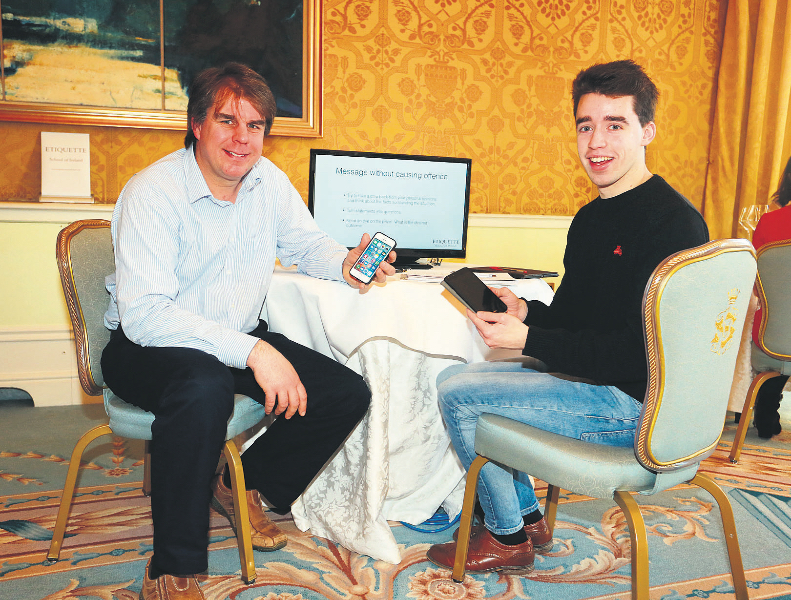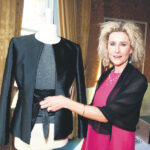How to mind your manners
Dublin People 21 Jan 2017
FOR some Irish people our limited knowledge of formal etiquette might derive from a particular scene in the 1998 film ‘Titanic’.
In the movie Molly Brown (Kathy Bates) advises Jack Dawson (Leonardo DiCaprio) to “start from the outside and work your way in” as he is forced to reckon with a first-class dinner setting and the numerous instruments of cutlery laid out on the table before him.
Although it captured the stuffiness of the early 1900s, at a recent afternoon in the lavish surrounds of the Shelbourne Hotel, I was reminded of the importance in applying etiquette to our everyday lives.
The Etiquette School of Ireland had organised the event to help broaden our understanding of some of the principles.
The showcase was headlined by a carefully assembled team of Ireland’s top etiquette professionals who gave us a crash course in the basics.
Orla Brosnan, the founder and director of the Etiquette School of Ireland, was keen to advise guests on how to conduct themselves at the dinner table.
You must never use your fork to shovel food, she pointed out, or put your elbows on the table and never hold a wine glass anywhere else but the stem.
You must also never cut a bread roll in half but slice it bit by bit and this must process must be accompanied by buttering it as you go along.
You must not leave the table for the loo until the plate has been cleaned and removed by the waiter or waitress.
Brosnan is the messiah of etiquette in Ireland. She established the school after being meticulously trained in the finery of etiquette in London and is relentlessly motivated by her vocation to ensure that Irish people are fully cognisant of what to do and what not to do.
For Brosnan, we all have a duty to carry on the etiquette based traditions that our parents and grandpaarents schooled us in when we were children but that we often neglected as we got older.
The rules of etiquette have also proved an advantage in the job interview and Annette Kinne, undoubtedly one of Ireland’s top communications consultants, was on hand to offer a few tips on how top present yourself.
Sky News, RTÉ, Government ministers, Apple, Pfizer, and IFTA (Irish Film and TV Award) winners…Annette has advised them all.
Her guidance is focused on how to be mindful of the simple things that many of us overlook, forget or ignore when seeking new employment.
Some of her simpler but effective strategies include not talking about what you did in your last job, and instead focusing on what you had achieved while improving the company.
Crucially Annette advises that it is not about what you say, but how you say it that counts.
Annette insists that body language and clothing are also critical components in shaping an opinion in the minds of potential employers about whether or not you’ll be suitable for the job. Be friendly and confident, she stresses.
Maintaining eye contact with the interviewers is key, and ensure you’re well-groomed from your finger nails to your hair. Annette says that all these things are watched and picked up on by an interview panel and could decide whether or not you’ll get to sign that contract.
The advent of the digital revolution has led to the birth of a new phenomenon in the world of etiquette called ‘netiquette’ – etiquette in the online world and topic expert Michael Keogh warned about the importance of maintaining a reputable digital footprint.
You should never have more than three hashtags in a tweet, he advises; you should never allow a Facebook comment war to last longer than three comments on a thread; and never use a mobile phone for social media purposes in the company of others, unless absolutely necessary.
Both Annette and Michael are clear on this point – prospective employers will check out your digital footprint, so remember, that picture of you drinking in a field when you were 18, may come back to haunt you when you’re trying to get that job in the bank when you’re now aged 28.
REPORT: Andrew Ralph
- How to mind your manners












